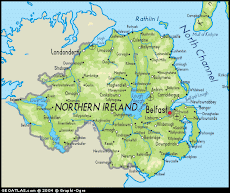Jesus called them together and said, ‘You know that the rulers of the Gentiles lord it over them, and their high officials exercise authority over them. Not so with you. Instead, whoever wants to become great among you must be your servant, and whoever wants to be first must be your slave—just as the Son of Man did not come to be served, but to serve, and to give his life as a ransom for many.’ Matthew 20:25-28
I do a lot of dishes here. I sometimes feel that a good eighty percent of my time is spent washing dishes. Dishes at home (since we have no electric dishwasher,) dishes at the WAVE Centre (despite their electric dishwasher,) dishes at church (no dishwasher,) or dishes at Youth Club (again, no dishwasher.) I have a permanent case of dish-pan hands, and I must admit that many times washing dishes is about as exciting as watching paint dry. I don’t quite loathe it, and I’d still rather wash dishes than, say, clean the bathroom, but it’s definitely on my top ten list of ‘Things I Prefer NOT to Do.’ It’s one of the least-challenging things I do—well, except for scrubbing hot chocolate and fruit smoothie residue from the bottoms of cups I can’t get my hand into—but it definitely doesn’t make for much mental stimulation.
However, it’s been interesting to see that, while there’s next to zero mental stimulation, the art of washing dishes spurns quite a lot of spiritual stimulation. In one of his many over-their-heads enigmatic illustrations of the Kingdom, Jesus tells his disciples that whoever wants to be great must be a servant. Whoever wants to be first must be last, a slave. Whoever wants to lead must follow. In our winner-take-all, dog-eat-dog capitalistic Western society, this makes about as much sense as torching your own home in order to ensure that it never gets struck by lightning. (Exactly, no sense at all.) But Jesus didn’t come to Earth to make sense, he came to speak truth. And while I don’t presume to know exactly what he was talking about in this passage of seeming conundrums, I have figured out that I don’t have to figure it all out in order to put it into practice. (As Jimmy Buffett said, ‘If you figure out that you don’t have to figure it all out, you are finally getting your s**t together.’ And yes, I did just quote Jimmy Buffett to make a point about Jesus.) Anyway, if service is what it takes then service is what I can give. And if that service is doing the dishes—for the first time or for the millionth time—then I can do that.
Because it’s not really about the dishes. In order to wash the dishes, I have to be in the kitchen, and just like at home, sooner or later, everyone passes through the kitchen. Whether I’m at home and Phen or Nathaniel comes in to grab a bite to eat or make a cup of tea or even to help me in drying the dishes, or whether I’m at the WAVE Centre and one of the dozens of staff members comes in or one of the dozens of members is there or one of the several other volunteers is making lunch for a group, the kitchen is rarely a quiet place. I think I can count on one hand the times I’ve done dishes completely on my own. We talk about our day. We talk about our challenges at work. We talk about the weather. We talk about politics. We talk about religion and how, as an American, I view the Catholic/Protestant ‘issue.’ We talk about programming and the community we serve and the Bible and beer and books and home and health and family and food and tea versus coffee and football versus football and what taxi company is the cheapest and where to get the best Ulster Fry and what airline has the best deals to Paris and somehow God is present in all of it. Because it’s not really about the dishes. It’s about the relationships.
My family is one of those ‘hang out in the kitchen’ families, much to my grandmother’s chagrin. She loves us, but her kitchen is (was—they moved) tiny (now it’s even smaller) so she constantly has to navigate around 4 or 5 family members at any given point while trying to make dinner and catch up with everyone because she hasn’t seen us in 6 months. It’s a great circus to be part of. We like being in the kitchen because for us that’s where it’s the liveliest. The food is there, the people are there, and cooking is a family tradition. Recipes are passed down from generation to generation along with the stories that go with them, and, oddly enough, even some cookware is passed down. It’s while washing out the 5-gallon stock pot that was my grandmother’s that I get the story of why it has a deep groove in the bottom as though someone smashed it with a stick. (It actually fell off the peg where it was hanging in the garage and landed on the runner of a Flexible Flyer snow sled.) It’s while washing the wooden spoons that my mother uses that I learn that they weren’t always that shape, but she’s worn them down after decades of use. (They were wedding presents, and I was 23 when I accidentally snapped the handle of the largest spoon. I thought they were a testament to my parents’ marriage since they’d been used in the kitchen for 33 years and was nearly distraught, but my mom just told me to buy her some new ones so she could start wearing those down, too. She figures her grandkids will break the next set.)
I tell you these stories partly because they’re amusing, but mostly because they’re about something bigger. They’re about the relationships. Whether it’s at work or with family or with housemates who are slowly becoming family, somehow serving them, doing the dishes with them, is what builds the relationships. It’s the little, everyday things that lays the foundation for the big, spectacular things. So I’ll continue to serve, and it will most likely be by doing the dishes. Lots of dishes. I’ve gotten pretty good at it. But, Mom? If I could have a week or so off of dish duty when I get home, that would be great!

